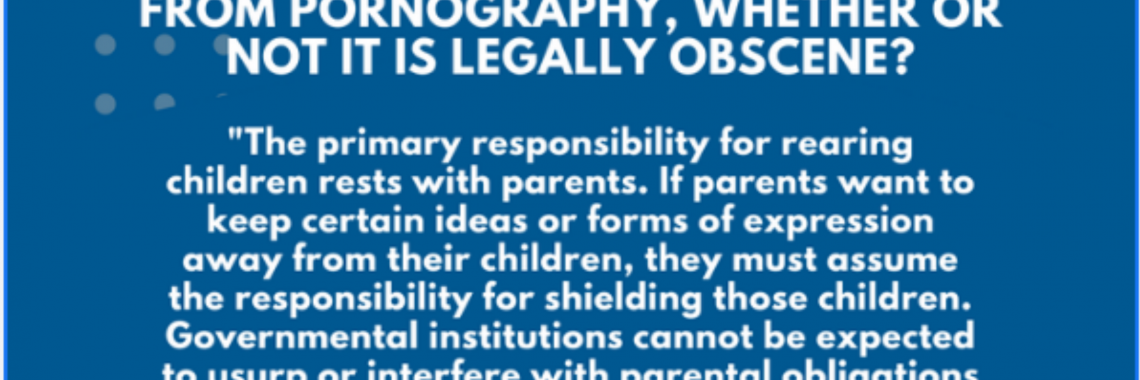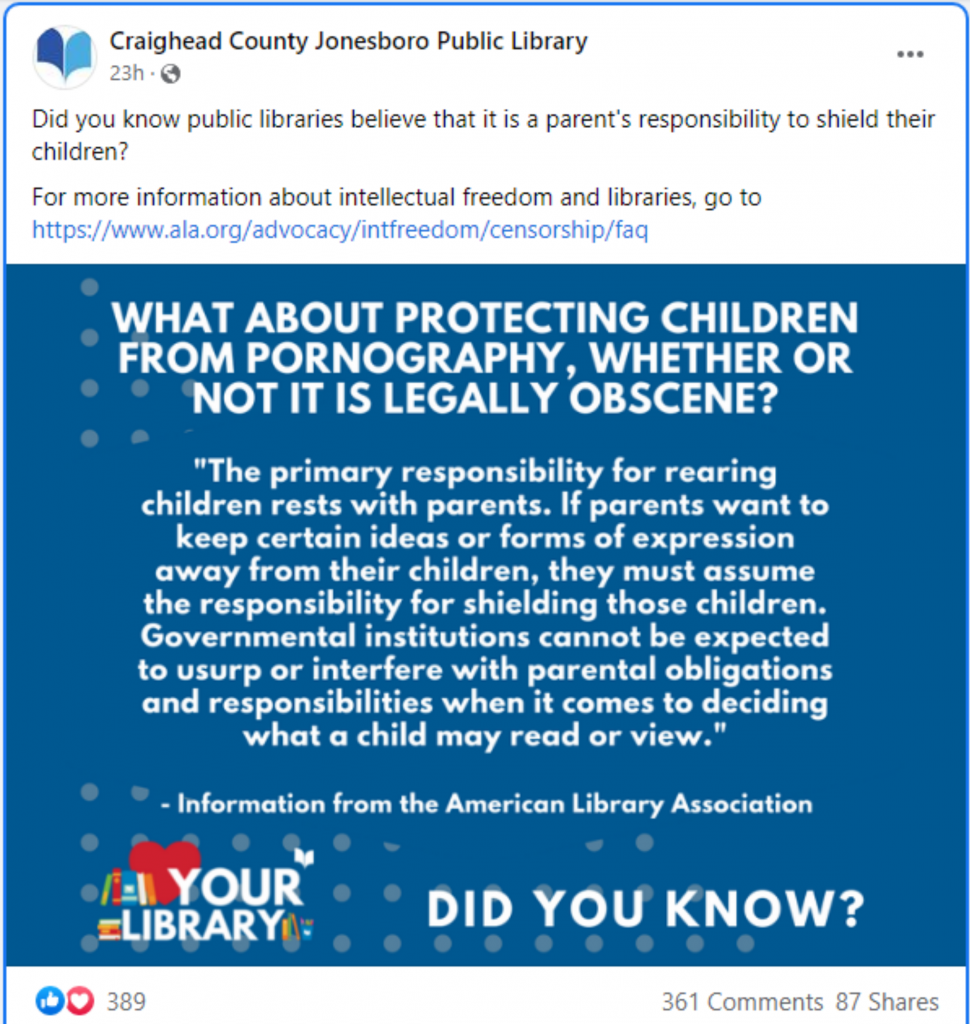Craighead County to Vote on Reducing Millage for Library that Features Sexually Explicit Children’s Books

This November voters in Craighead County will decide whether to reduce the millage for the public library in Jonesboro.
The Jonesboro public library has been at the center of multiple controversies for nearly a year and a half — such as inappropriately hosting an LGBT Pride display in its children’s library, placing books with sexually-explicit images in its children’s section, and failing to adopt a policy that separates sexual material from children’s content.
Some of these books — such as Gender Queer and l8tr, g8tr — contain explicit images or descriptions of teens engaged in sexual acts.
Library officials have stood by their decision to share sexual material with children — even posting on Facebook that it isn’t the library’s responsibility to protect kids from obscenity.
The Jonesboro Sun reports that this November voters in Craighead County will decide whether or not to reduce the library’s millage from two mills to one mill.
Under Amendment 30 and Amendment 38 to the Arkansas Constitution, voters can circulate petitions to place a measure on the local ballot assessing a form of property tax — or “millage” — to provide funding for city and county libraries.
In Jonesboro’s case, property taxes for the library are currently two mills — or 0.002%. The ballot proposal would reduce the rate to one mill — or 0.001%.
Library officials in Jonesboro have said the tax cut would “devastate” the library and could force it to close, but news reports indicate the library has enjoyed a budget surplus of more than a million dollars for the past three years, and documents from the Craighead County Clerk’s Office show the millage tax provided more than $3.1 million in revenue for the library last year.
Even if the library were not spending public tax dollars on obscene children’s books, reducing the millage in Craighead County arguably would help balance the library’s budget and provide relief for taxpayers.
It’s ridiculous to think that a library isn’t to blame if a child finds pornographic or obscene material in the library’s children’s section.
Public libraries are supposed to be for everyone.
Families should be able to take their children to the library without worrying what their children might see.
Taxpayers should not be forced to subsidize graphic novels that depict explicit images of minors engaged in sexual acts.
Unfortunately, many libraries in Arkansas don’t seem to understand that.
Articles appearing on this website are written with the aid of Family Council’s researchers and writers.



